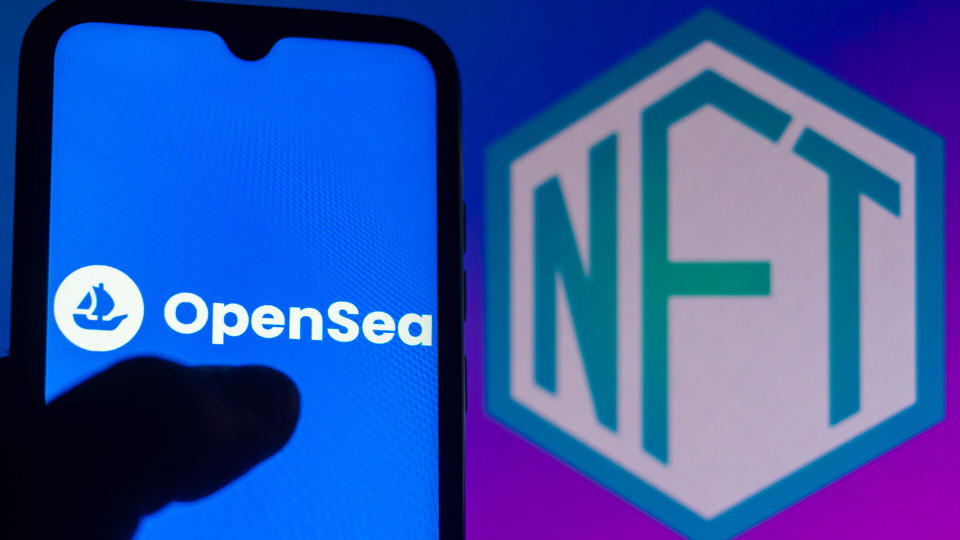NFT Marketplace OpenSea Refunds Users $1.8 Million After Buyers Exploit Loophole for Massive Profit

OpenSea, one of the leading NFT marketplaces, has suffered a so-called exploit — the described exploit enabling users to purchase NFTs from users at well below market value. NFTs with a market value of $1.1 million were purchased in this way in late January, according to a report by Elliptic. Now, OpenSea has refunded about $1.8 million to users who suffered investment losses after confusion about a feature on the platform caused investors to unwittingly sell valuable NFTs far below market prices, according to Bloomberg.
See: 15 Most Expensive NFTs Sold So Far
Find: There’s a New Free Service for Compiling Tax Data to Report Crypto and NFTs
Elliptic has identified at least five users who have exploited this loophole to purchase a minimum of twelve NFTs for much less than their market value. The purchased NFTs include offerings from the Bored Ape Yacht Club, Mutant Ape Yacht Club, Cool Cats and CyberKongz NFT families, according to the report. Elliptic explained in its report that the exploit appears to rely on the fact that NFT owners are unaware that old marketplace listings for their NFTs are still active. Those old listings are now being used to purchase NFTs at prices chosen by the seller in the past — a much lower price than the going rate on the current market.
OpenSea refunded a total of 750 Ether for 130 wallet items, according to Bloomberg.
NFT Experts Commend OpenSea
Robert Powers, director of decentralized media at NFT publishing platform Vivid Labs, told GOBankingRates that OpenSea should be commended for reimbursing users who’ve been negatively affected by bad actors exploiting its marketplace, especially given that the fault does not appear to be on the side of users of its platform.
“Fixing these issues and compensating those impacted by them will foster trust with users and, more generally, within the NFT space,” Powers said. “Going forward, it’s critical that the NFT industry as a whole works to find solutions to a wide variety of issues that are causing problems for this rapidly growing and incredibly important asset class. This is because NFTs will almost certainly see a huge number of new buyers and users in the coming months and years, and it will be of utmost importance for the industry to construct the safest platforms with which to engage a whole host of NFTs.”
Powers added that the more that artists and creatives trust the systems which run NFTs — including marketplaces but also platforms for staking and showcasing NFTs — the more that everyday people will feel confident in using these platforms to, in turn, support the digital art of these artists and creatives.
OpenSea Exec Clarifies the Situation
In a blog post, OpenSea exec Alex Atallah wrote that while the issue has been discussed as an “exploit” or a “bug” — “the reality is that it’s a fundamental feature of blockchain marketplaces: only the person who lists an item for sale can cancel that listing.”
He explained that when a user transfers an NFT out of a wallet (ex. “wallet 0xABC123”) while a listing is active, that listing is not automatically canceled — and if the user transfers the NFT back into hypothetical “wallet 0xABC123,” that listing will still be active. “In some cases, that listing may now be for an amount below the current floor price for NFTs in that collection,” Atallah said. “This is, in many instances, a very good thing and an important aspect of what makes web3 special: your NFTs are completely in your control.”
More: Crypto Trend: Wine & Whiskey NFTs
Atallah added that there is a shared responsibility in the NFT community to educate newcomers to the benefits — and unique pitfalls — that come with interacting with blockchains. “But as early members of the NFT space, we have a disproportionate share of that responsibility, and hold our product to a higher standard than most. We wish we had been clearer and more proactive in educating users on the risks of leaving orders uncancelled before transferring an NFT,” he wrote.
NFT Space Requires Trust to Grow
Alex Salnikov, co-founder and head of product at Rarible — a marketplace for NFTs — told GOBankingRates that: “We are aware of the recent sale order issues enabling scammers to purchase Bored Apes and other valuable assets at lower prices.”
“With the NFT space growing at such a rapid rate, marketplaces have an increased responsibility to maintain user protection, uphold the value of digital assets, and limit fraudulent activity to create an environment of trust and transparency. Establishing this trust will be critical for helping NFTs grow in popularity,” Salnikov said.
Learn: YouTube, Twitter to Add NFT Features for Users and Content Creators: Is the Hype Real?
Explore: NFT Hype: Have We Reached Peak Investor Interest?
He added that Rarible, for example, is continuously developing features to protect users against scams and other prevalent issues in the space.
“This includes our recently launched order management tool, enabling users to identify and cancel potentially risky sale orders from OpenSea where NFTs are being sold for prices below market value. We also have a meticulous user verification process, where creator profiles are manually reviewed by our team to ensure they are legitimate,” he said.
More From GOBankingRates
Experts: Here’s How Much You Should Have In Your Checking Account
Bank Accounts That Will Help Supplement and Grow Your Social Security
This article originally appeared on GOBankingRates.com: NFT Marketplace OpenSea Refunds Users $1.8 Million After Buyers Exploit Loophole for Massive Profit
